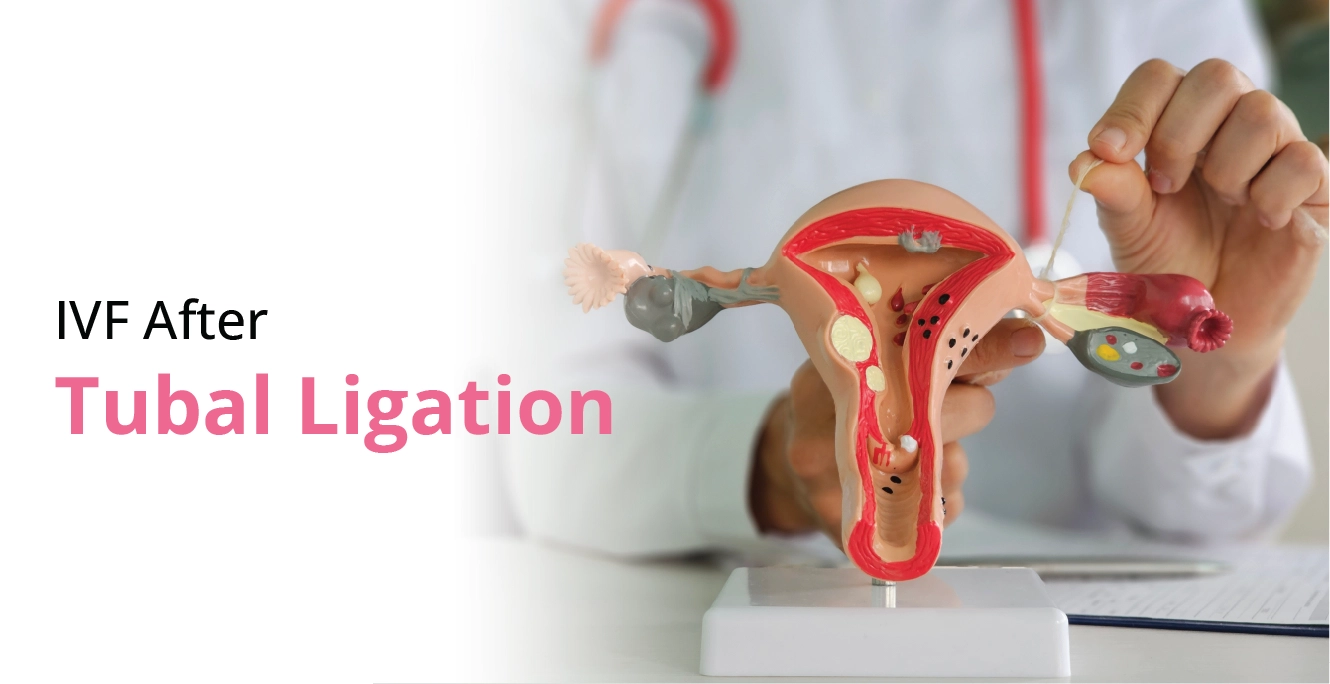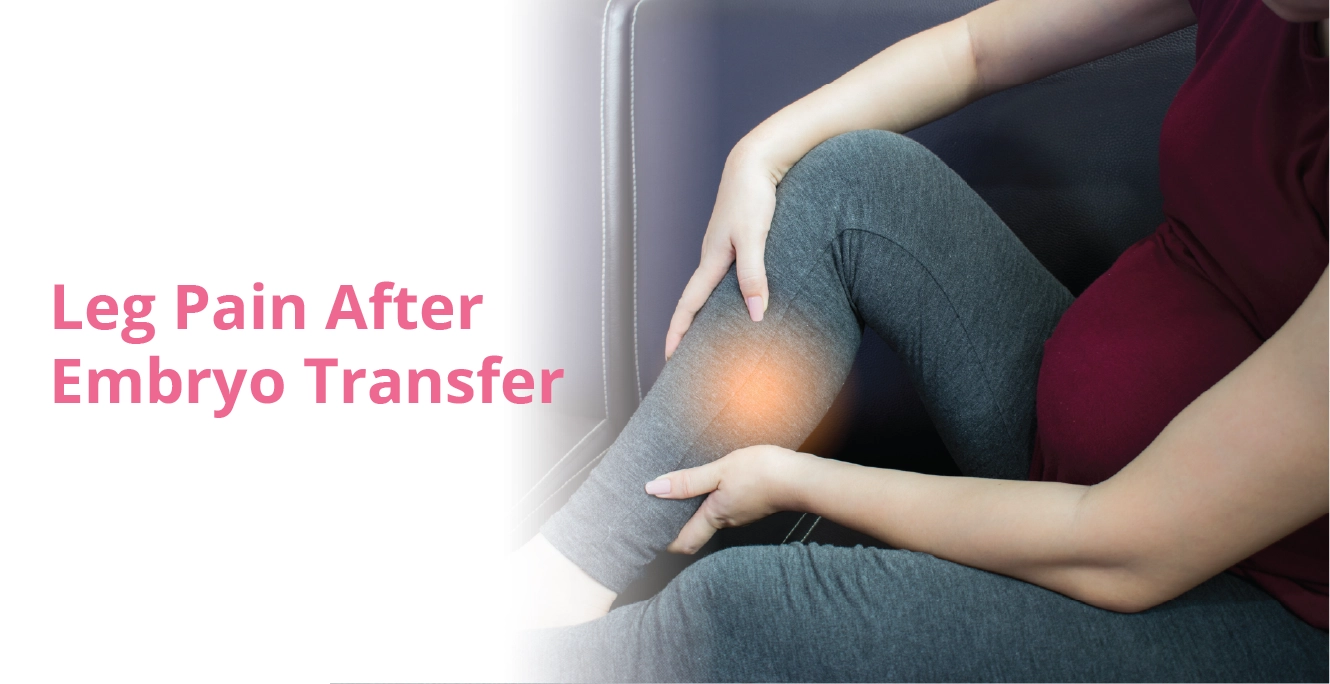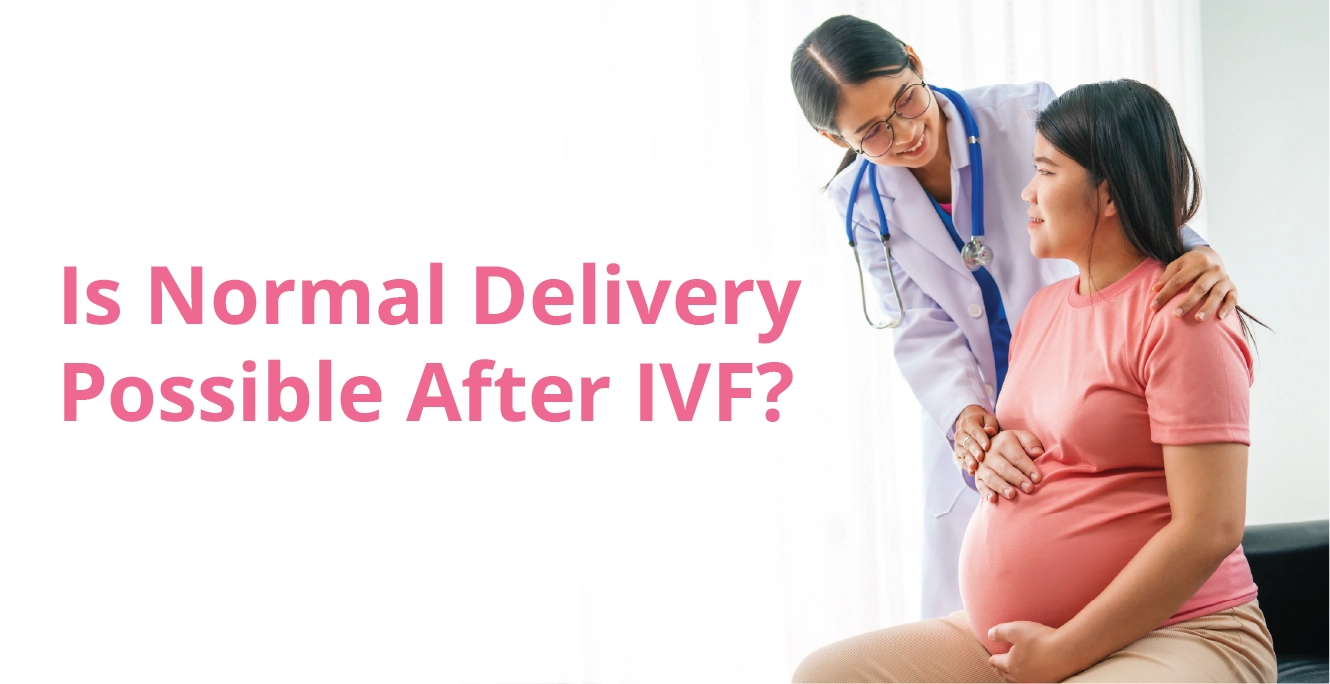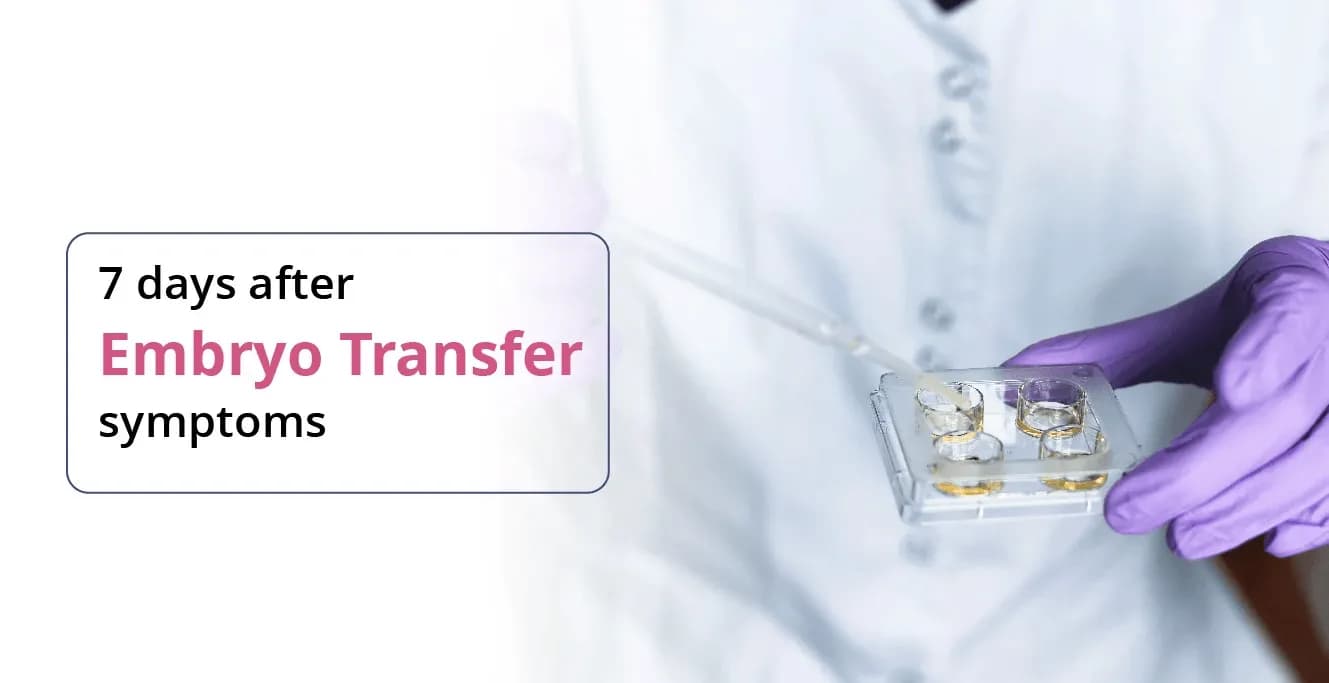
Symptoms After 7 Days of Embryo Transfer

Table of Contents
- How Long Does the Embryo Transfer Procedure Take?
- What Happens in the Days After the Embryo Transfer?
- Day-by-Day Symptoms After Embryo Transfer
- Symptoms After 7 Days of Embryo Transfer
- Possible Causes Behind Embryo Transfer Symptoms
- What if There Are No Symptoms After 7 Days of Embryo Transfer?
- Red flags: When to Seek Medical Attention
- Tips for the Post-Embryo Transfer Phase
- When to Take a Pregnancy Test After Embryo Transfer?
- The Importance of the Two-Week Wait
- Coping Emotionally During the Two-Week Wait
- Lifestyle Factors That May Improve Implantation Success
- Conclusion
- Frequently Asked Questions
It is normal to feel emotionally overwhelmed after embryo transfer. Even a small sensation can make you curious and waiting for the clarity becomes the hardest part. While symptoms can vary widely from one person to another, understanding what may happen during this phase can help reduce anxiety. It is important to understand that symptoms alone do not confirm pregnancy. Many changes are caused by hormones and medications used during IVF. Let us walk through what you may experience day by day.
How Long Does the Embryo Transfer Procedure Take?
Embryo transfer is a relatively quick procedure, usually lasting between 15 and 30 minutes. However, you may spend a few hours at the fertility clinic, as you will need time to prepare and recover afterwards. Your doctor will usually ask you to rest for a short period after the transfer to allow the embryo to settle in. The entire process, including setup and rest time, can take around 2 to 4 hours.
What Happens in the Days After the Embryo Transfer?
After the embryo transfer, there are many things that happen. The embryo will continue to develop and hopefully implant in your uterine lining. Here’s a timeline of the key milestones:
| Day(s) | Event |
| 1-2 | The embryo begins hatching from its shell and starts attaching to the uterine lining. |
| 3 | Implantation begins as the embryo burrows into the uterine wall. |
| 4-5 | Implantation continues, and the cells that will form the placenta and foetus start to develop. |
| 6 | The hormone hCG, which signals pregnancy, starts to be produced. |
| 7-8 | Foetal development progresses, and hCG levels continue to rise. |
Day-by-Day Symptoms After Embryo Transfer
The following timeline is a general guide. Some women notice symptoms early, while others feel nothing at all and still have a healthy pregnancy.
| Days After Transfer | Common Symptoms | Why It Happens |
| 3 Days | Mild cramping, bloating, breast tenderness, fatigue | Progesterone support and uterine adjustment |
| 5 Days | Light twinges in the lower abdomen, nausea, and increased tiredness | Possible early implantation, hormonal changes |
| 7 Days | Spotting, pelvic heaviness, frequent urination, and mood swings | Implantation may have occurred |
| 9 Days | Heightened breast sensitivity, mild nausea, sense of warmth | Rising pregnancy hormone levels |
Not everyone follows this pattern, and that is completely normal.
Symptoms After 7 Days of Embryo Transfer
By day seven after embryo transfer, many women become especially alert to physical changes. This is often around the time when implantation may have already taken place.
- Mild Cramping or Pulling Sensation: A gentle pulling or pinching feeling in the lower abdomen can occur. This is sometimes linked to implantation or uterine changes. It should be mild and not severe.
- Light Spotting: Some women notice very light pink or brown spotting. This can be implantation spotting and is usually brief. Heavy bleeding is not typical and should be reported to the doctor.
- Breast Tenderness: Progesterone supplements commonly cause breast fullness or soreness. This symptom alone does not confirm pregnancy.
- Fatigue: Feeling unusually tired is common. Your body is working hard, and hormonal support plays a role here.
- Bloating or Heaviness: Abdominal bloating can be due to progesterone and ovarian stimulation from earlier in the cycle.
- Increased Urination: Hormonal changes may lead to more frequent bathroom visits, even before a pregnancy test turns positive.
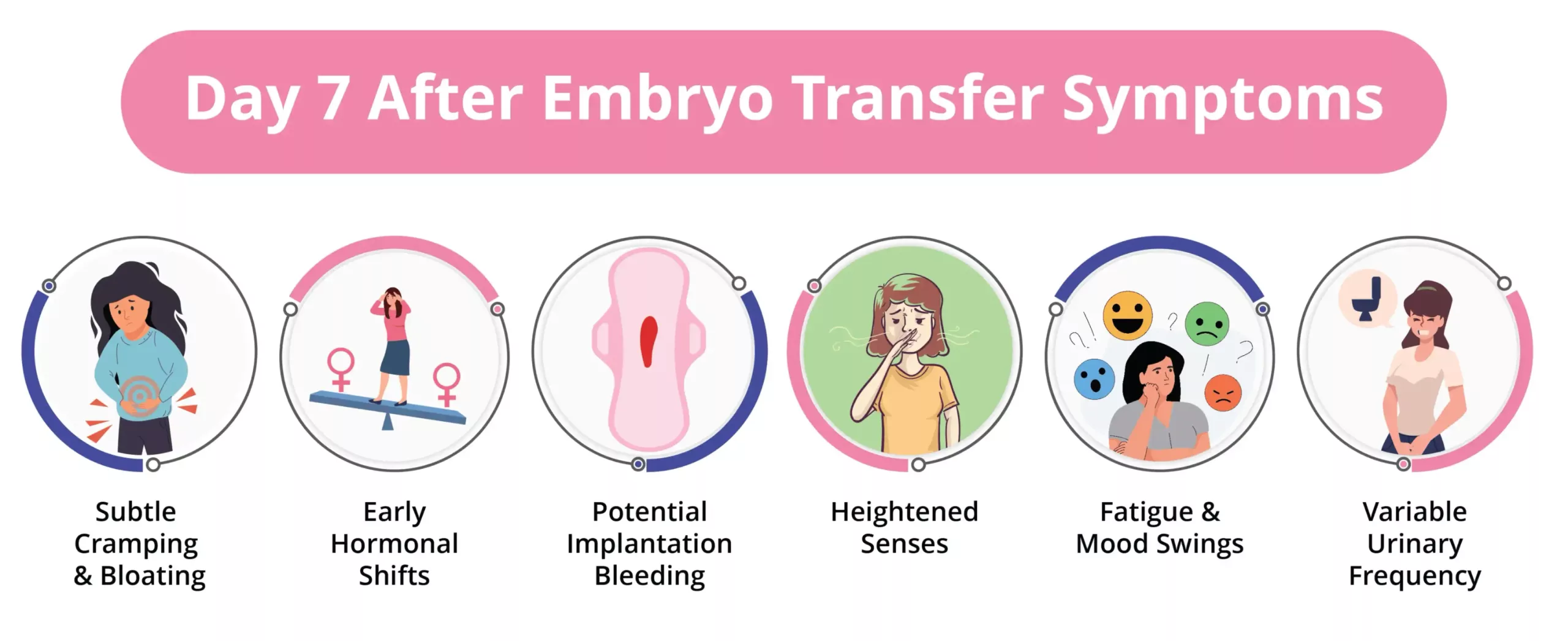
Possible Causes Behind Embryo Transfer Symptoms
| Symptom | Possible Cause |
| Cramping | Mild cramping indicates embryo implantation into the uterine lining |
| Breast sensitivity | Increased progesterone levels cause tenderness and sensitivity |
| Fatigue | Hormonal changes lead to feelings of exhaustion |
| Implantation bleeding | Light pink to brown discharge, although not everyone experiences this |
| Frequent urination | Rising progesterone and hCG levels cause increased urination |
| Bloating | Fluid retention and bloating due to IVF hormone treatments |
What if There Are No Symptoms After 7 Days of Embryo Transfer?
If you are not experiencing any noticeable symptoms 7 days after your embryo transfer, do not panic. It is estimated that 10-15% of women have no symptoms at all during this time. The absence of symptoms doesn’t mean that the transfer was unsuccessful, just as the presence of symptoms doesn’t guarantee a positive outcome. The only definitive way to know if you’re pregnant is through a pregnancy test.
Red flags: When to Seek Medical Attention
While many symptoms are normal, certain red flags warrant immediate medical attention. Here is what you should watch out for:
- Heavy bleeding, similar to a heavy period
- Severe abdominal pain or cramping
- High fever (above 100.4°F or 38°C)
- Persistent nausea or vomiting
- Dizziness or fainting
If you experience any of these symptoms, contact your fertility specialist or seek emergency medical care.
Tips for the Post-Embryo Transfer Phase
The post-transfer phase is about balance, not strict bed rest.
- Continue prescribed medications exactly as advised
- Engage in light activities such as walking
- Avoid heavy lifting and high-impact exercise
- Eat simple, nourishing meals
- Stay hydrated throughout the day
- Prioritise sleep and emotional calm
- Avoid comparing symptoms with others
Stress does not cause IVF failure, but staying emotionally supported does help overall well-being.
When to Take a Pregnancy Test After Embryo Transfer?
Most fertility specialists recommend waiting 10 to 14 days after embryo transfer before taking a pregnancy test. This is because testing too early can lead to false negative results due to low hormone levels, which may unnecessarily cause emotional distress and confusion. A blood test for beta-hCG is the most reliable method and gives accurate information about implantation.
The Importance of the Two-Week Wait
After your embryo transfer, your clinic will likely advise you to wait two weeks before taking a pregnancy test. This can feel like an eternity, but this waiting period is crucial for several reasons:
- It allows time for the embryo to implant and start producing the pregnancy hormone, human chorionic gonadotropin (hCG).
- Testing too early can lead to false-negative results, causing unnecessary stress and disappointment.
- It gives your body a chance to adjust to the hormonal changes and for any medication side effects to subside.
Coping Emotionally During the Two-Week Wait
We understand that it may be difficult for many couples to wait for those two weeks. Here are some strategies to help you stay calm:
- Practice stress-reducing techniques like deep breathing, meditation, or gentle yoga.
- Lean on your support network of family, friends, or fellow IVF warriors.
- Stay busy with activities you enjoy, but avoid anything too strenuous.
- Be kind to yourself and acknowledge that your feelings are valid.
Lifestyle Factors That May Improve Implantation Success
Although successful implantation depends on various factors, healthy lifestyle habits do play an important role:
- Eat a balanced, nutrient-rich diet with plenty of fruits, vegetables, whole grains, and lean protein.
- Stay hydrated by drinking plenty of water and electrolyte-rich fluids.
- Take any supplements recommended by your doctor, such as folic acid and vitamin D.
- Get plenty of rest and aim for 7-8 hours of sleep per night.
- Avoid smoking, alcohol, and caffeine, as these can interfere with implantation.
Conclusion
The seven days after embryo transfer can feel like an emotional roller coaster. Symptoms may come and go, or not appear at all. Neither situation defines success or failure. Trust the process, follow medical advice, and remember that your body may be doing important work quietly. The most reliable answers come from the pregnancy test, not from symptoms alone.
Frequently Asked Questions
Q: What are the positive signs after embryo transfer?
There is no single specific sign of pregnancy after embryo transfer. Some women may experience light spotting, mild cramping, and a gradual rise in pregnancy hormone levels, which are considered positive indicators. There can also be cases where no symptoms are present yet pregnancy has occurred.
Q: When do pregnancy symptoms appear after embryo transfer?
Symptoms may occur as early as 5 to 7 days after embryo transfer, while some women may experience them only after a positive test.
Q: What precautions should be taken after embryo transfer?
- Avoid smoking and alcohol consumption
- Do not self-medicate
- Avoid hot baths
- Do not skip follow-up visits
Q: Which foods should I avoid after embryo transfer?
It is best to avoid:
- Raw or undercooked foods
- Excess caffeine
- Alcohol
- Highly processed or junk foods
Q: Is it safe to have intercourse after embryo transfer?
While many doctors advise avoiding intercourse for a few days after transfer, it is best to consult with your fertility specialist.
A Word From the Expert
The waiting period after embryo transfer can be a time of mixed emotions. Remember that your body is working hard to create a pregnancy. Take care of yourself, and know that your fertility team is here to support you every step of the way. ~ Swati Mishra
Our Fertility Specialists
Related Blogs
To know more
Birla Fertility & IVF aims at transforming the future of fertility globally, through outstanding clinical outcomes, research, innovation and compassionate care.
Had an IVF Failure?
Talk to our fertility experts

 Our Centers
Our Centers












